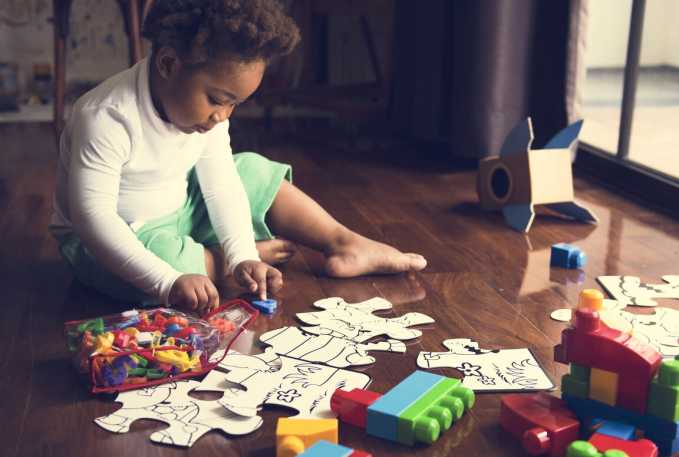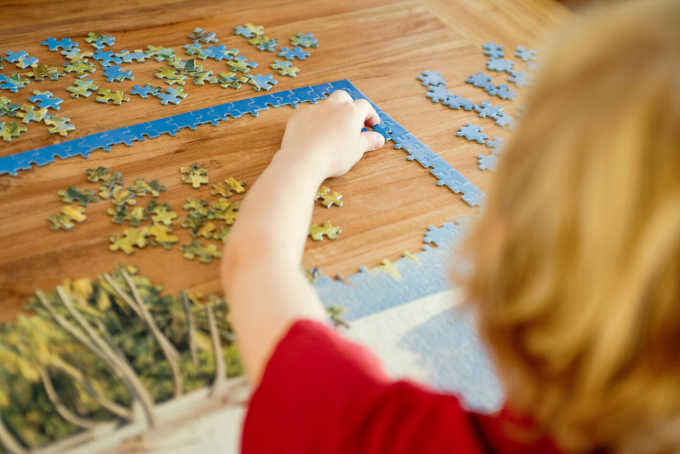It may be difficult to get a child’s attention on a task for extended periods of time. Parents and caregivers often struggle to come up with fun and engaging ways to have their child do articulation practices.
What are articulation games?
Articulation is one of the challenges that children with autism face when they are beginning to speak. It is the ability to correctly produce different sounds. Your child may receive articulation therapy at school when that time comes. This means that they may struggle with certain sounds when it comes to communication. If you feel like your child is struggling with certain sounds in words, there are some fun and entertaining ways to get them engaged with the task at hand.
Articulation games are fun activities that can help your kiddo improve their ability to say words and sounds clearly. These games can be used by kids and adults, but they are especially helpful for children who are learning to talk and use language.
Articulation games can help practice making specific sounds using lips, teeth, tongue, and throat. They can also help kids speak more smoothly and clearly. There are many different types of articulation games, such as games where you match words and sounds, tongue twisters, and reading exercises out loud.
Why are articulation games important?
For several reasons, children should play articulation games often. First, being able to communicate effectively is crucial in all facets of life, especially in school and socially. Children’s social and academic success can be bolstered if they develop their articulation abilities through play.
Second, children can benefit from articulation games by enhancing their attention, memory, and language processing abilities. Children’s listening and processing skills, as well as their capacity to learn and apply new vocabulary and phonological awareness, might benefit from these kinds of exercises.
Finally, articulation games can give kids a chance to work on their fine motor skills, social abilities, and emotional management. Children who take part in these types of activities benefit from enhanced development in areas such as hand-eye coordination, grasp, dexterity, teamwork, self-regulation, and more.
1. Improve communication skills
The best way for kids with special needs to develop their communication abilities is through articulation games! Kids can develop stronger articulation abilities via games and practice, which will help them become more confident and successful communicators. Good speech and language skills are crucial for effective communication. Through better understanding and interpreting other people’s communication, they will be able to convey their thoughts, feelings, and ideas more effectively.
Using language and words to explain, describe, and express oneself is another common aspect of articulation games. Kids can broaden their vocabularies, strengthen their language abilities, and cultivate their capacity for diverse forms of expression by taking part in these activities.
Last but not least, articulation games can also promote social engagement and teamwork through activities like sharing, cooperating, and taking turns. The teamwork, turn-taking, and effective listening and speaking that come from engaging in these activities are among the crucial communication skills that children can develop.
2. Learn new words
For kids to learn new words, articulation games are a lot of fun! The terminology and language used in many of these games expose kids to new ideas and terms. As a result of engaging in these activities, children can increase the number of words in their vocabulary and language proficiency by learning new words through repetition and context.
Visual and auditory feedback are frequently used in articulation games, which can aid in the learning and retention of new words by children. Children can learn to create and comprehend new words more accurately by paying attention to the sounds and meanings of new words and comparing them to a model.
Moreover, some articulation games may also call for the use of manipulatives, such as letter tiles or sound cards. Kids can learn new words through hands-on exploration and discovery by experimenting with these materials and manipulating them.
3. Express themselves better
Playing articulation games is a great technique for kids to express themselves better. Kids may develop their articulation abilities via games and practice, which will help them become more confident and successful communicators. Good speech and language skills are necessary for effective communication and self-expression. They may be able to communicate their ideas and emotions more effectively and clearly as a result.
Using language and words to describe, clarify, and express oneself is a common component of articulation games. Children can increase their language proficiency, learn new vocabulary, and enhance their capacity for diverse forms of expression by taking part in these activities.
Last but not least, articulation games can give youngsters a chance to express themselves creatively through role-playing, storytelling, and other imaginative pursuits. Children can learn to express themselves in more unique and interesting ways by using their language and communication skills creatively.
4. Develop their fine motor skills
A really enjoyable way for kids to develop their fine motor abilities is through articulation games! Using tiny muscles in the lips, tongue, and throat to produce particular sounds is a common feature of articulation games. Kids can enhance their control and coordination of these muscles by practicing these sounds through articulation games, which in turn aids in the development of their fine motor abilities.
Additionally, a lot of articulation games include both visual and aural feedback to aid children in learning and producing new sounds. Kids can learn to make minor adjustments with their lips, tongue, and throat muscles to generate sounds that are more accurately by paying attention to how they are being made and comparing them to a model. Kids’ fine motor abilities, attention span, and capacity for exact movement are all improved through this process of using feedback and modifying their motions.
Additionally using manipulatives like letter tiles or sound cards is possible in some articulation games. Children can develop critical fine motor skills like grip, dexterity, and hand-eye coordination by picking up and playing with these little objects.
Improve their social skills
In addition to being fun, articulation games can help kids develop and improve their social skills. For efficient communication, a crucial component of social contact, excellent speech and language abilities are crucial. Kids can become more certain and successful communicators by practicing and honing these abilities through games, which can aid in the formation and maintenance of friendships.
Many articulation games also encourage social engagement and teamwork through activities like taking turns, cooperating with others, and according to rules. Children who take part in these activities can develop crucial social skills including cooperation, taking turns, and communication.
Finally, articulation games can aid children in gaining social-emotional abilities including self-control, self-worth, and empathy. Kids can feel more capable and confident by practicing and acquiring new abilities through games, which can enhance their self-esteem and social-emotional growth.
Additionally, children can learn to better comprehend and relate to the viewpoints and emotions of others through interacting with others and developing their empathy and understanding through games.
How do I choose the right articulation game for my child?
When selecting the ideal articulation game for your child, there are a few things to take into account.
1. The age of your child
Consider your child’s age and developmental stage first. Choose games that are neither too demanding nor too simple for your child’s age and ability level. They won’t become impatient or bored in this way!
2. The level of difficulty of the game
Second, consider your child’s unique articulation requirements. To help your child advance and observe improvement, use games that specifically target the sounds or language skills they are working on.
This means considering the game’s accessibility and practicality as well as the level of difficulty of the game. Choose games that can be played in a range of situations and locales and that are simple to access and set up and appropriate for your child’s needs and abilities.
3. The interests of your child
Take your child’s preferences and interests into account. To keep them engaged and interested in the game, pick games that your youngster will adore and find to be highly captivating.
4. The number of players
Some articulation games require more than one players. You should select one that your kid is comfortable playing and interacting. Think about the kind of game and the supplies required. Select games that are suitable for your child’s attention span and that make use of secure and simple-to-use resources.
You can select an appropriate, engaging, and successful articulation game for your child by taking these aspects into account.
10 Fun articulation Games your Child Will Love
We have gathered 10 articulation games and activities for you and your child to play to work on problem and target sounds!
Articulation Scavenger Hunt
Take advantage of the good weather when you can! Take your kid outside and explore. You can make a scavenger hunt list with the target articulation sounds.
Have your child say each word and talk about the items while you are looking for them outside. Let your child pronounce the items they found and those they have not. Pick the sounds based on your child’s knowledge and the words and sounds around you outside. For instance, you can use the following sounds find suitable items:
- /b/
- /p/
- /m/
- /g/
- /k/
Cootie Catchers/Fortune Tellers
Cootie catchers, or fortune tellers, are not just to give you ideas about the future. They are also a great way to practice with your child sounds and articulation!
This game makes phonics really fun. You can make the templates yourself or search online for amazing, ready-to-be-used ones. If you are going to make yourself one, all you would need is a sheet of paper, a pen, and some colorful images! Or alternatively, you can prepare this on your computer and print them out.
The idea here is to teach the child the phonics of certain sounds in different parts of the word. Here is an example for a cootie catcher that targets the sound /f/:

No matter what you call them, this folded piece of paper will make learning phonics much more fun. This is an amazing way to also learn about and practice blending and segmenting sounds.
Mouse and Cheese Game
This fun game is another great way to practice articulation. You can just use a pen and a paper or there are websites online to provide you with fun visuals along with your game. Make a list of the words that have target sounds in them and every time you would like to play, pull out one.
Put enough empty spaces for the letters in the selected word. Also draw stairs, with cheese at the bottom and the mouse at the top. Provide your child with a clue as to what this word may be.
Once your child gets the sound right, say the sound once again. The catch is that if your child gets the sound wrong, then the mouse gets a step closer to the cheese. The game is to prevent this! Have your child say the sounds, as well as the word with the target sound.
Story Time!
This would be an amazing time to learn and master sounds! Preparation may take a little bit more time compared to some other ones but it is worth it. You can also combine this activity with another beneficial tool, social stories, making it a double learning activity. Follow these steps with your child:
- For this activity, you will need to gather words with target sounds as well as sentences. These should contain both nouns and verbs, and some adjectives with the target sound. You may include the words you have already learned and been practicing, or you can come up with new ones. Make sure that you have this list of words and the story written so that the child can follow along easily.
- You will now guide your child to ask questions about the story, like “Who is this?”, “What happened next?”, “How did this story end?”.
- You can highlight the words with target sounds in bold or in italic to get the focus on that specific word.
- You can then use this story again to practice more, and have your child master the target sounds!
This activity will be suitable to any story you like. Story aspect will make it easier for your child to understand and make it more interesting for them.
Pizza on the Way!
This is one of the more elaborate activities among articulation games. It also brings together other learning tools in addition to articulation. In this game, you will turn a physical environment into a small town.
You can use masking tape to mark the floor. These will be your roads, and on the side of the roads, you will put houses and street signs. These can be something you make out of cardboards or you may use toys you have lying around and mark them. You will then give each street a name which will contain the target sounds you want your child to master.
Your child can then take the toy car and essentially “deliver” a pizza to the correct house at the correct address you provide them. They will also articulate the street names while driving on one. It is so much fun and a really immersive game!
Catch the Ball
Beach balls are great for this activity as they are already divided into colorful sections. In addition, this activity can be played with multiple children so it is the perfect game to practice with siblings.
Take the balls and write with permanent markers the words with target sounds on each quadrant of the ball. Then, determine a finger to be a designated pointer for the word. For instance, this may be the child’s thumb. Then, toss the ball around! When you yell stop, the child with the ball in their hand will pronounce the word that their thumb is pointing or touching. And this continues on!
Colorful Flash Cards
This activity also requires preparation ahead of time, but once you make the cards or find them online and print them, you will be good to go for a while as they can be used multiple times. If you can laminate them, they will last even longer!
Using visuals on flash cards will help in creating a more engaging exercise. Extra visual support can remind the child how to position their mouth to make the specific target sound on the card. The card will also have an image related to the word being pronounced.
Each card will show how to make the mouth shape to produce the sound. For additional explanation, you may put the mouth shape to a corresponding place on the card, like putting the mouth visual at the beginning of the word when the initial sound of the word is targeted. This will help your child better understand where the target sound is located in the word.
You can start by making a list of words containing target sounds in addition to the words used the most in everyday life. This activity will also improve the child’s vocabulary.
Jumbled Words
In this fun activity, you can make a list of certain words with target sounds. For instance, if you would like to work on the sound “th”, you will gather words that have this sound in them. Then, you will jumble up the words!
Provide your child with some clue as to what this word may be, and let them know the position of the th sound in the word. Then solve the puzzle with your little hero! You can also use online tools or find printables online to make it easier for you.
I Spy
This is another activity that you can do outside and it requires no preparation or other tools. Go outside to a park, a playground or even a different street and walk around. This can be done anywhere. Have your child try to find items that contain the target sound and then describe it to you. This could also be done as a group activity!
Simon Says
This game will help with articulation as well as skills like turn-taking and following directions. It is especially beneficial if you are working on /s/ at the sentence level. It is best to play this with a group but you also can accompany your child.
Take turns being Simon. When it’s their turn, have your child try to use as many words with the target sound as possible. For instance, if you are working on /s/, they can say “Simon says make silly sounds”. This will encourage your child to use words with common sounds such as R or S without even knowing!
Last updated: January, 2023




